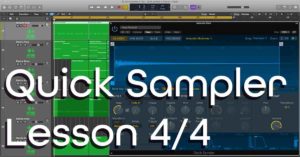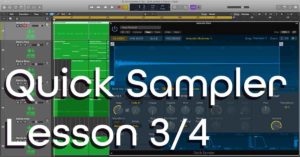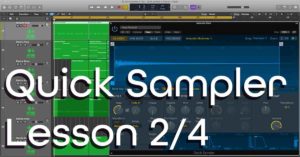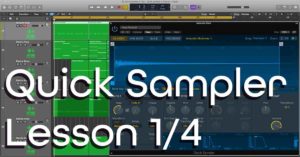Want To Be A Film Composer?
In the film industry, the job of a composer is multifaceted and challenging. Film composers must create original music that fits the style of the movie, support the emotions of characters, and help move the plot forward. If you’re planning on pursuing a career in film scoring, you’ll need to know how to balance all these elements while also adding your own unique voice. While there are many different roles on a film set, such as producer or production designer, most films have one person who takes on the challenge of being their “sound-voice”: the film score composer. The role of a composer is extremely important because his or her music can make or break a scene. A great score can elevate an entire production and give it an identity. It’s no wonder why being a film score composer is one of the most sought after jobs in Hollywood today!
Build a Solid Collaboration With the Filmmaking Team
The moment you sit down with the filmmaking team to discuss your scoring idea is the start of your collaboration. Just because you are the composer on set doesn’t mean you can give orders. You’re there to help guide the film and serve the director’s vision. Keep an open mind and ask questions to learn about the film and get a better sense of the director’s style. You’ll also want to gain an understanding of the production schedule and see if you can offer any suggestions to help mitigate any potential challenges you might foresee. If you’re not sure how to approach this conversation, start by asking the director about the story and characters. You can also ask about the kinds of emotions he or she wants to evoke from the audience and see if there are any scenes that are particularly challenging to score from a musical standpoint. Once you’re off the set or in my case off the phone or Zoom! You can reach out to the director to thank him or her and let them know you’re still available if they need any more help or advice when it comes to the music, good communication is key to winning jobs and keeping them!

Stay Authentic to Yourself as a Composer
While you should try to stay true to the director’s vision, you also need to stay authentic to yourself as a composer. Being a good composer is not just about playing the notes correctly. It’s about bringing your own sonic fingerprint to the table and finding ways to creatively solve any potential challenges the director might be facing. For example, if the director is trying to convey a very sad scene but the orchestra doesn’t have the correct sound to fit the emotion of the music, you can reach into your toolbox of instruments and come up with an idea that best suits the production. Be open to any suggestions the director makes for you, but also remember to also offer your own solutions. A good example is Ludwig Göransson’s score for the Mandalorian. Creating a music score with a unique sonic footprint as part of the Star Wars franchise would have been a daunting task but Göransson masterfully created music that both fits perfectly with the franchise and is unmistakably unique to him.
Establish and Maintain Continuity
One of the most important things to remember as a film score composer is to maintain continuity throughout the entire film. How do you do this? You make sure that each scene has the same soundscape and musical identity. So, if the drums are overpowering in one scene and the director decides he or she would like them to be less noticeable in the next, you’ll need to make the appropriate adjustments, perhaps have those drums playing a slower rhythm, softer or filtered to still be present but subtle. If you’re ever in a situation where you’re not sure how to proceed, it’s better to ask the director for guidance than to create a jarring musical break in the score. While working on a film score, keep an eye on the visual elements of the film, particularly the cinematography, to see if you can find any patterns that can inform your musical choices. Hans Zimmer’s score for Dune encapsulates this idea perfectly. The music is as otherworldly and endlessly compelling as the visually cinematic wonder-scapes that fill the screen.

Develop a Rhythm for the Film
The rhythm of a film is important because it sets the pace for the film as well as the audience’s feelings. For example, a fast-paced film with a quick rhythm will make the audience feel energetic while a slow-paced film with a relaxed rhythm will make the audience feel calm. When you’re working on a film score, particularly if you’re a new composer, it’s a good idea to look at the overall structure of the film and try to find the natural places where you can start and end your musical phrases using the right rhythms and tempos. You can also decide if you’d like to use musical motifs throughout the film to help tie together different scenes. Creating a rhythm for the film will help the director see how your music can support the story he or she is trying to tell.
Know What Works for You as a Musician
While you need to remain flexible throughout the scoring process, there are a few things you can do ahead of time to help you get into the right mindset for creating music for a film. Make sure to take care of yourself both mentally and physically during the scoring process. Make sure you’re eating well, getting enough sleep, and taking care of any other daily stresses in your life. If you’re feeling stressed out, take some time to relax and clear your head before you sit down at the piano or keyboard to start composing. A good way to clear your head is to write down your worries on a piece of paper and then crumple it up and throw it in the trash so you don’t have to worry about them while composing.
Trust me when I get a commission I spend more time trying to avoid the fear of starting to write, when what I should really do is let go of my fears and just start writing!!
Conclusion
The role of a composer is extremely important because his or her music can make or break a scene. A great score can elevate an entire production and give it an identity. It’s no wonder why being a film score composer is one of the most sought after jobs in Hollywood today! Whether you’re new to the industry or an experienced composer, these concepts will help you achieve a successful film score. Remember, the hardest part of the job is getting the gig, so if you want to make scoring films your career, don’t be afraid to put yourself out there and show the industry what you’ve got! What’s more, you can also learn how to score for film by signing up to be musi, composition programmes below!
You may have noticed that there’s only 5 concepts here, that’s because with film composing the 6th concept I want to mention is always be prepared for the unexpected, things often change and aren’t always what they seem. Composing is an ongoing process and you should always look out for the unexpected and spot when things are missing from the score! Be vigilant, be creative and your best expressive self will emerge triumphant! Good luck with your composing endeavors 🙂







